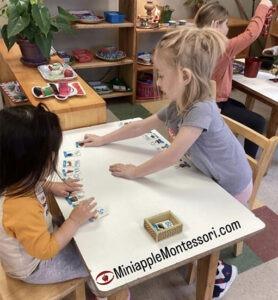
When it comes to laying a solid foundation for academic success, the significance of early childhood education cannot be overemphasized. Among the various educational philosophies, the Montessori approach stands out for its ability to foster independence, curiosity, and love for learning in young children. A Montessori preschool can be a pivotal starting point for your child, setting the stage for a smooth transition to elementary school and beyond.
Holistic Development Focus
Montessori education is renowned for its holistic approach to development. It recognizes that children grow and learn at their own pace and in their own way. This philosophy doesn’t just prepare children academically but ensures they develop socially, emotionally, and physically. Activities are designed to foster independence, self-esteem, and decision-making skills—qualities that are crucial for navigating the more structured environment of elementary school.
Cultivating a Love for Learning
One of the core tenets of Montessori education is to instill a lifelong love for learning in children. This is achieved through a learning environment that encourages curiosity and allows children to explore subjects that interest them. By giving children the autonomy to choose their activities and work at their own pace, Montessori schools help cultivate intrinsic motivation and a sense of satisfaction in their achievements. This self-directed learning approach equips children with the confidence and enthusiasm for learning that will benefit them throughout their educational journey.
Enhancing Social Skills
Montessori classrooms are mixed-age environments where older children often mentor the younger ones, fostering a sense of community and cooperation. This setup mirrors the real world and helps children develop excellent social skills. They learn to collaborate, listen, share, and resolve conflicts amicably. These skills are essential as they progress into elementary school, where working in groups and interacting with a broader social circle become integral parts of the daily routine.
Preparing for Academic Rigor
While the Montessori approach is child-centered and allows for considerable freedom, it also meticulously prepares children for the academic rigor of elementary school. The carefully designed materials and activities target specific learning outcomes and skill sets. From math manipulatives that teach counting and basic operations to language materials that enhance vocabulary and reading skills, Montessori education covers key academic areas in an engaging and effective manner. The hands-on learning experiences make abstract concepts more concrete, helping children grasp complex ideas more readily.
Fostering Independence and Responsibility
Perhaps one of the most distinctive features of Montessori education is its emphasis on independence and personal responsibility. Children are encouraged to take charge of their learning and care for their environment. This sense of responsibility extends to personal tasks, such as organizing their workspaces, managing their time, and completing tasks without undue reliance on adult assistance. These habits of self-discipline and independence stand children in good stead as they enter elementary school, where they are expected to manage more complex schedules and take responsibility for their learning.
Building Executive Function Skills
Executive function skills, such as working memory, flexible thinking, and self-control, are crucial for academic success. The Montessori environment, with its structured choice, collaborative projects, and practical life activities, is an ideal setting for developing these skills. Activities are designed to challenge these cognitive processes gently, allowing children to develop focus, self-regulation, and problem-solving abilities. These foundational skills contribute significantly to a smooth transition to the more demanding academic and social expectations of elementary school.
Choosing a Montessori preschool for your child offers them an unparalleled start to their educational journey. The Montessori method, with its emphasis on holistic development, love for learning, social collaboration, academic preparation, independence, and executive functioning, provides a comprehensive foundation for success in elementary school and beyond. By nurturing the whole child and respecting their unique pace of development, a Montessori education empowers children to approach the challenges of elementary school with confidence, capability, and a positive attitude toward learning.
Call our team at the Miniapple International Montessori School to learn more.

